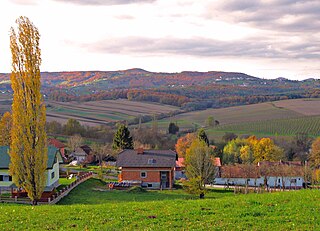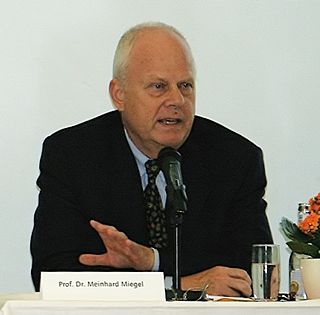Erich Schmid (4 May 1896 in Bruck an der Mur, 22 October 1983 in Vienna) was a physicist from Austria. He made important discoveries in the field of crystal plasticity.

Bruck an der Mur is a city of some 13,500 people located in the district Bruck-Mürzzuschlag, in the Austrian state of Styria. It is located at the confluence of the Mur and Mürz Rivers. Its manufacturing includes metal products and paper. Bruck is located on the Graz to Vienna main line, and is an important regional rail junction.

Vienna is the federal capital and largest city of Austria, and one of the nine states of Austria. Vienna is Austria's primate city, with a population of about 1.9 million, and its cultural, economic, and political centre. It is the 7th-largest city by population within city limits in the European Union. Until the beginning of the 20th century, it was the largest German-speaking city in the world, and before the splitting of the Austro-Hungarian Empire in World War I, the city had 2 million inhabitants. Today, it has the second largest number of German speakers after Berlin. Vienna is host to many major international organizations, including the United Nations and OPEC. The city is located in the eastern part of Austria and is close to the borders of the Czech Republic, Slovakia, and Hungary. These regions work together in a European Centrope border region. Along with nearby Bratislava, Vienna forms a metropolitan region with 3 million inhabitants. In 2001, the city centre was designated a UNESCO World Heritage Site. In July 2017 it was moved to the list of World Heritage in Danger.

Austria, officially the Republic of Austria, is a country in Central Europe comprising 9 federated states. Its capital, largest city and one of nine states is Vienna. Austria has an area of 83,879 km2 (32,386 sq mi), a population of nearly 9 million people and a nominal GDP of $477 billion. It is bordered by the Czech Republic and Germany to the north, Hungary and Slovakia to the east, Slovenia and Italy to the south, and Switzerland and Liechtenstein to the west. The terrain is highly mountainous, lying within the Alps; only 32% of the country is below 500 m (1,640 ft), and its highest point is 3,798 m (12,461 ft). The majority of the population speaks local Bavarian dialects as their native language, and German in its standard form is the country's official language. Other regional languages are Hungarian, Burgenland Croatian, and Slovene.
Schmid studied physics and mathematics at the University of Vienna and received his doctorate in 1920 under the supervision of Felix Ehrenhaft. He then became the assistant of Ludwig Flamm. [1] In 1951 he accepted a position at the University of Vienna and stayed there until retiring in 1967.

The University of Vienna is a public university located in Vienna, Austria. It was founded by Duke Rudolph IV in 1365 and is the oldest university in the German-speaking world. With its long and rich history, the University of Vienna has developed into one of the largest universities in Europe, and also one of the most renowned, especially in the Humanities. It is associated with 20 Nobel prize winners and has been the academic home to a large number of scholars of historical as well as of academic importance.

Felix Ehrenhaft was an Austrian physicist who contributed to atomic physics, to the measurement of electrical charges and to the optical properties of metal colloids. He was known for his maverick and controversial style. His fearless iconoclasm was greatly admired by philosopher Paul Feyerabend. He won the Haitinger Prize of the Austrian Academy of Sciences in 1917.
Ludwig Flamm was an Austrian physicist.
One of his most successful contributions is the book "Plasticity of Crystals: with special reference to metals" ("Kristallplastizität: Mit Besonderer Berücksichtigung der Metalle") which he coauthored with Walter Boas. [2] In 1960 the Austrian Academy of Sciences awarded him the Erwin Schrödinger Prize and named the institute for material sciences after him ("Erich Schmid Institute of Materials Science"). [3] He was also awarded the Wilhelm Exner Medal, the Austrian Decoration for Science and Art and the Honorary ring of the city of Vienna.

Walter Moritz Boas FAA was a German-Australian metallurgist.

The Austrian Academy of Sciences is a legal entity under the special protection of the Republic of Austria. According to the statutes of the Academy its mission is to promote the sciences and humanities in every respect and in every field, particularly in fundamental research.
The Erwin Schrödinger Prize is an annual award presented by the Austrian Academy of Sciences for lifetime achievement by Austrians in the fields of mathematics and natural sciences. The prize was established in 1958, and was first awarded to its namesake, Erwin Schrödinger.
The Schmid Factor (or Schmid's Law) is named in honor of him.






